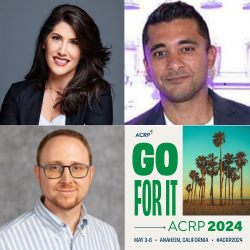When the ACRP Certified Professional (ACRP-CP®) certification launched in 2017, it made available to the clinical research field a rigorously developed and validated test leading to a credential highlighting the skills of professionals whose job roles do not easily stay within the boundaries of traditional clinical research coordinators (CRCs), clinical research associates (CRAs), or principal investigators.
This will be a critical year for professionals throughout the clinical research enterprise to build on the momentum gained in 2023 for improving diversity, equity, and inclusion (DEI)—not just among the volunteer participants in clinical trials, but also among all other stakeholders in their design, management, and results.
Data integrity issues continue to be uncovered by U.S. Food and Drug Administration (FDA) investigators, leading to a range of regulatory actions. Between 2017 and 2022, FDA issued more than 160 Warning Letters citing data integrity deficiencies,¹ which relate to the completeness, consistency and accuracy of data.²
We need to have open conversations about all elements of medical product development that are currently in flux and what these changes mean to clinical trial stakeholders
Continued progress in modernizing clinical trials is essential. This should include evaluating appropriate use of technology and the potential of non-traditional sites, such as retail pharmacies, as well as offering at-home services to study participants.




